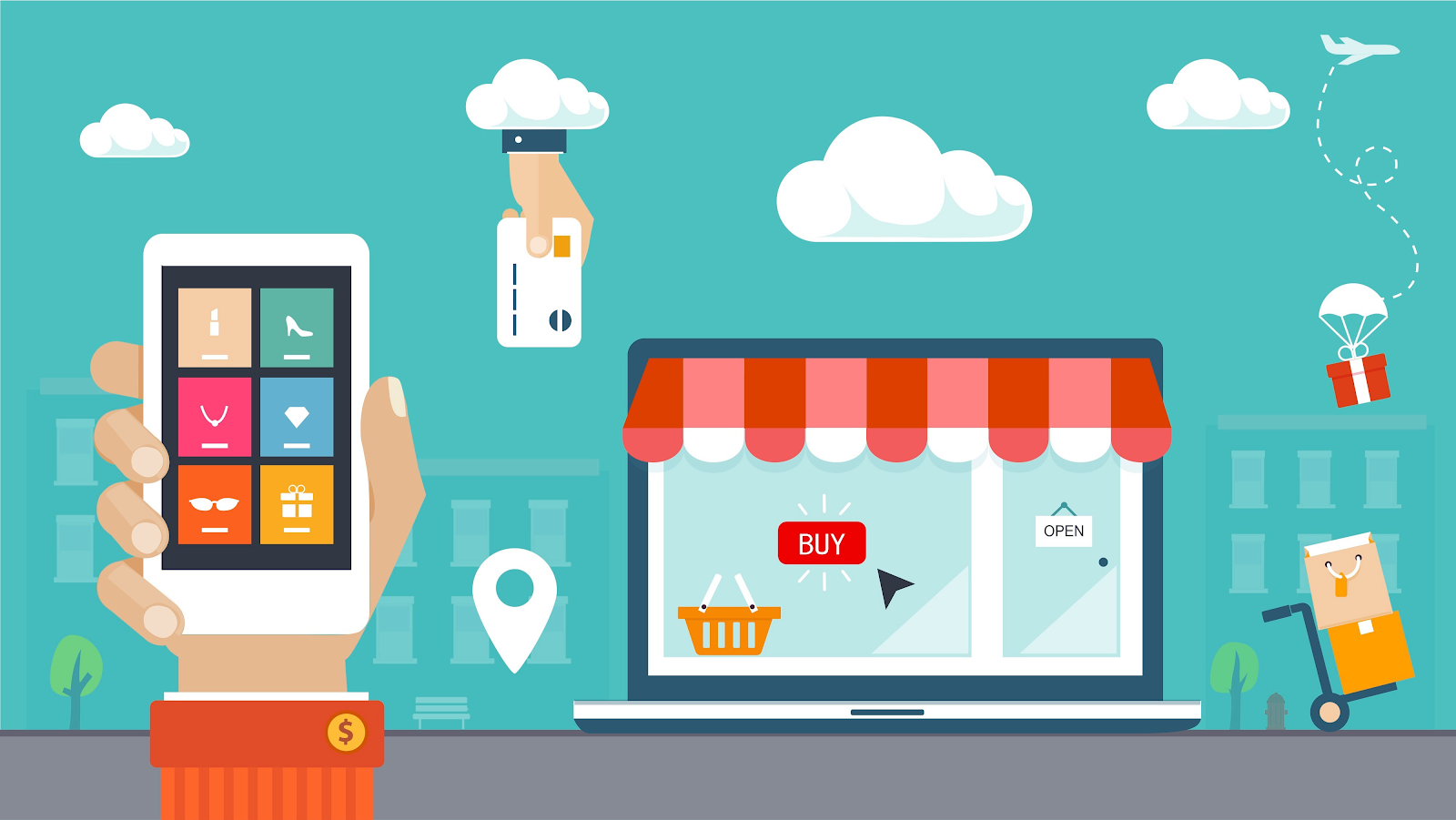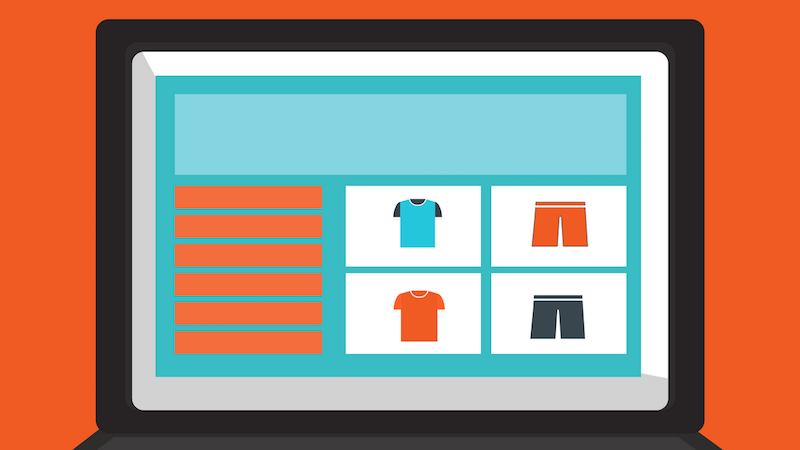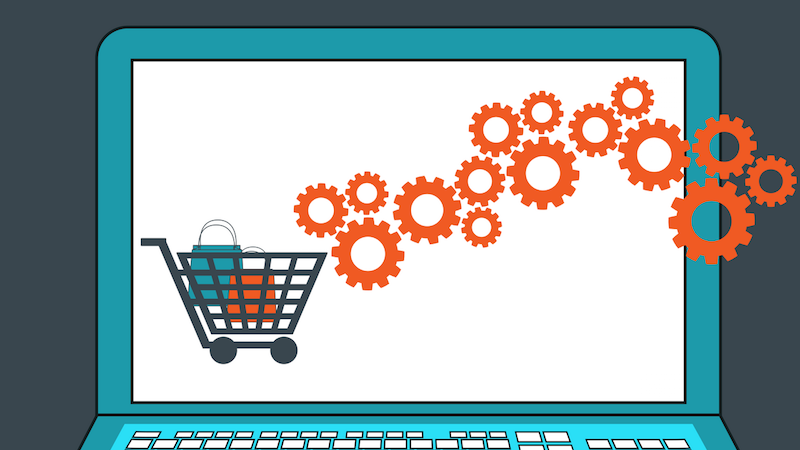How to Build a Successful Ecommerce Website in 10 Steps
Whether you're creating your own online shop as a way to make a little bit of extra cash or you're building one as part of your overall business...
I know what I am looking for, and would like to chat.
A team of data-driven marketers obsessed with generating revenue for our clients.
Because the proof is in the pudding.
At Campaign Creators we live by three principles: Autonomy, Mastery, Purpose.

Third party sites for eCommerce businesses come in all shapes and sizes; all with different benefits, functions and features. Between suppliers, employees, and the product itself, the costs and time invested is already at a maximum. By the time the distribution stage is in front of you, keeping costs low and the availability and awareness of your product high might be of extreme importance to you. And that’s where outsourcing your distributor can become your company’s greatest cost advantage. In fact, creating a seller account on a third party site isn’t likely to cost you anything at all.
In this blog, we’ll discuss your third party site options, and help you utilize these platforms as part of your overall eCommerce marketing plan to grow your business.
Put simply, third party websites easily host and manage online sales for businesses for a fee. For more context, third party websites display your product on their platform, deal and collect orders, manage payments, ship orders, and track delivery. They then release payment to the seller at the end after deducting a percentage of the sum as a fee.
Distributing your product is an entire operation in itself, and in this highly digital world, you can’t really avoid it. Your company’s success practically relies on an online presence.
Third party sites speed up the selling process by allowing you to skip the in-house development headaches, and use a ready-made platform that is optimized for customer experience and conversions. Before choosing which third party site will best fit your eCommerce business, let’s first distinguish between eCommerce marketplaces and eCommerce platforms.
It’s common that people use the terms “online marketplace” and “eCommerce platform” interchangeably, when in fact, they mean very different things. It’s true that they’re both spaces for online selling, but that’s about where the similarities end. Recognizing the differences will help you choose the right medium based on your short and long-term goals.
An online marketplace is a multi-vendor site, where one can find different brands of products coming from a variety of sellers. The most familiar online marketplaces are Amazon and eBay. Someone might be hesitant to use an online marketplace because they feel like their product will be drowned out by the competition, when really, online marketplaces are a great way to boost revenue by gaining exposure on an established customer base. Just keep in mind that most of these marketplaces carry varying fees.
An eCommerce platform allows users to build their own website using its software. They help simplify operations such as setting up a website, offering pre-made templates, ensuring necessary security features, and scalability potential. Although more time-consuming, if optimal control of your site is your top priority, eCommerce platforms allow for that.
Below, we’ll compare both online marketplaces and eCommerce platforms based on commonly ex-cogitated features of an online selling experience. My hope is that this information will allow you to make a more informed decision.
Launch times can vary between online marketplaces and eCommerce platforms, and your decision should be dependent on your level of experience. If you’re new to selling online, an online marketplace can make it easier for you to launch. You can minimize time and hassle through a marketplace, as the infrastructure is already intact.
If you’re a more experienced seller, eCommerce platforms can still be an option to consider. This would be a viable option for experienced, tech-savvy sellers. This would also complement those who have enough employees to manage something as big as an eCommerce site.
It’s difficult to say which medium garners lower customer acquisition costs. This is because the initial costs of acquiring a customer on an online marketplace is inherently low, but this doesn’t account that most of your shoppers won’t recognize who they’re buying from. This prevents repeat customers, minimal brand awareness, and translates to a low customer lifetime value.
Gaining traction on your eCommerce platform, on the other hand, takes a lot more work. You can invest in organic SEO or paid ads to drive traffic, but either option requires time or money. But the tradeoff here is that the brand recognition typically brought on by selling on your own site will turn one-time buyers into repeat customers. With a solid brand awareness and remarketing and retargeting strategy, achieving repeat customers will help keep customer acquisition costs low.
If your decision on whether to use online marketplaces or eCommerce platforms is based on customer acquisition costs, the answer is really dependent on what’s more important to you—quick, one-time purchases, or slower, repeat purchases.
Marketing, targeting and segmentation share the same goal: reaching interested customers effectively given a company’s limited resources. It’s important to strategize differently between an online marketplace and an eCommerce platform.
In eCommerce platforms, all your traffic comes from targeting buyers from the ground up. As previously stated, this takes time and money, but it’s worth noting that buyers may prefer buying this way. Visiting a site that sells one iteration of a product, rather than a page filled with your product and all its competitors, makes the selection process easier on the buyer. Not to mention the control over marketing, targeting and segmentation you gain when the visitor user experience is created by you. You can design your pages in a way that build funnels for capturing emails, build your brand, and is as creative as you desire. Seems like a win-win situation to me.
In an online marketplace, you focus on attracting both buyers and sellers -- the sellers being the heart of your platform. Marketplaces often benefit from the wide variety of sellers on the platform, because sellers are individually advertising their products listed on the marketplace, which makes the marketplace itself more known. So do your research: Are competitors of your product doing their part to pull traffic to the marketplace? You just might be able to steal those leads as your own customers.
The control you have over the marketing, targeting and segmentation process from an online platform is definitely less centralized, but is still doable and can be profitable as long as you’re keeping up on customer and product insights.
ECommerce platforms provide you the most control and customization capabilities. If your company has specific needs and unique processes, an online marketplace is probably not for you (and can often be more expensive long-term anyways!). Tailoring a site to your particular business, when done right, can help grow your site and serve as one of your company’s biggest assets. If you sell something a little less high maintenance, online marketplaces make the launching and upkeep process easy.
Long story short, if your product is highly differentiated, you should use an eCommerce platform. If your product is more standardized, skip the development pains and use an online marketplace.
I wouldn’t say there’s a single “best” online marketplace, but there definitely is a best marketplace for your specific business. Below, I’ll highlight some key features of each forum, so you can decide accordingly.
Amazon, as you know, has name recognition. If you polled 100 people on the street, chances are they know Amazon more than they know your store. Beyond the title, Amazon has an indisputable infrastructure - billions of dollars are invested in the buying experience, something that’s hard to compete with on your own. And don’t worry, using Amazon to sell won’t eat your profits in listing fees or large overhead costs. The money Amazon gets from you is only incurred when you’ve actually sold something. As the world’s largest retailer, you can trust in Amazon’s credibility as a marketplace. You just have to be willing to endure the competition...
Ohhh, eBay, the world’s biggest garage sale. Not actually, but it’s true that you can really sell anything there -- new or old. If your product is rare or arbitrary, eBay is especially useful to you. Customers seeking such items often have to sift through countless knock-offs, which can limit their trust in following through on a purchase. Using eBay to sell products like this, though, often makes up the difference in trust buyers need before purchasing a product. eBay maintains a customer satisfaction rate of 79%, and makes a point of protecting their shoppers from scams and viruses. Other features include the ability to auction, lower selling fees than Amazon (13% vs. 15%), shipping savings, and a giant market to capture.
Etsy is coined the global marketplace for unique and creative goods. If your product is personalized and crafty, you’ll find your market here. As this may be a dealbreaker, I should mention that Etsy only allows sellers making handmade products. You can’t commercialize on Etsy, which could be something you want, but it depends on your goals. If you aren’t planning on it, then you’ll enjoy the platform and its perks: built-in analytics, easy to set up and maintain, and lots of room to communicate and build relationships with customers.
Lastly, Walmart as an online marketplace. This is for those with a business much different than those on Etsy. Highly commercialized, branded products that make it onto Walmart’s marketplace are often successful based on its low competition structure. Walmart maintains low competition by keeping the brands they allow on the marketplace very sparse. While it’s difficult to become a seller here, striving for it would provide your business the exposure and sales it’s always hoped for.
Just like online marketplaces, there’s no one-size-fits-all solution. ECommerce platforms largely depend on your preferences, and will take some research. Use the content below as an introduction to some of the more popular options.
BigCommerce, designed for small to mid-market businesses, does a lot of the heavy lifting to get your eCommerce business up and running. It’s all advertised on the homepage, promising 28% annual growth, 99.99% average uptime, all in ¼ the cost of its competitors. Too good to be true? Well, it might be. They are basing this price point off their most basic plan. Monthly prices and add-on fees will make their prices actually exceed those of its competitors, but reviews suggest they make this up in value. Between countless resources to expand your knowledge as a seller, and a no-hassle speed and security guarantee, BigCommerce checks a lot of boxes for sellers regardless of the price.
Magento, an eCommerce platform positioned to have features that are out-of-the-box and highly customizable, often wins sellers over who value this sentiment the most. If you’re a business with unrelated product lines, you might want to consider hosting multiple websites as one back-end admin. This is something Magento allows you to do. Even if you aren’t considering more than one site, but your business wants a shopping platform that’s large-scale and still personalized, Magento provides a seamless combination of both.
Shopify is a one-stop-shop kind of platform, allowing you to sell online, on social media, or in person. As a business that might want all of these things, or isn’t sure yet what way of selling will generate the most ROI, Shopify is very malleable for a changing or multidimensional selling strategy. Some businesses you might recognize that use Shopify include Sephora, Tesla, and Gym Shark. This should speak for their profitability potential.
Squarespace has a lot going for it, but also going against it. It has some of the most competitive templates, features, and value for money on the market. But it doesn’t have an app store (making you completely reliant on its built-in features), and isn’t as simple to set up or become familiar with the terminology used as it is with other sites. If you’re experienced, or have time to learn, then you’ll benefit from the design, flexibility and quality of the templates and features.
While many businesses selling online may begin by choosing either an eCommerce platform or online marketplace exclusively, it doesn’t have to stay that way. It’s possible to have your own eCommerce website, and leverage its success through online marketplaces. Here’s how you can leverage both.
There’s a myriad of factors to consider when choosing where to sell online. What’s most important, though, is that your company still feels like your company in the end. If you get lost in commercializing and lose your brand, you could hurt your company’s integrity. On the other hand, if you play it safe or don’t commercialize at the right time, you could inhibit your company’s growth.
Staying up on research and making educated decisions will help your business prosper in the long run more than any quick sale will. Prioritizing your long-game wins will win your company sustainable growth.
Ready to focus on building a successful business? Automate and adapt your marketing to reach your consumers online with quick-win funnels, workflows, and templates from Express by Campaign Creators today!

Whether you're creating your own online shop as a way to make a little bit of extra cash or you're building one as part of your overall business...

If you find yourself wondering: “What’s a good conversion rate for my eCommerce store?” then heads up: You’re asking the wrong question.

If you’re looking to optimize your eCommerce marketing, you should start with your eCommerce email marketing automation strategy.